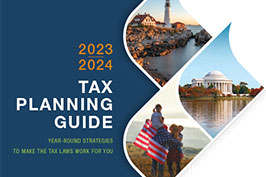How to close a car dealership
People in the business of selling cars have had a rocky several years. Before the COVID pandemic in early 2020, the demand for new cars was fairly “soft”. Then with the onset of the pandemic, manufacturing and supply chains were disrupted on a global scale, leading to a significant cutback in production for automakers.
The resulting shortage of new cars, trucks and SUVs meant that dealerships demanded and, in many cases, got higher prices for any vehicles they were able to deliver to consumers.
While post-pandemic there has been an improvement in the supply of new vehicles, now there’s a problem with decreased demand which could have a real effect on dealership revenues and profits.
Add issues with the economy, including higher interest rates as well as growing fears of a recession, and many independent, neighborhood dealerships could find themselves in a financial bind. Unable to weather the “storm”, some automotive dealers could be forced to close their doors.
Testimonial
Shutting down a car dealership involves more than simply turning off the lights and locking the doors. It takes serious planning and preparation to avoid any surprises. If you need to know how to close a car dealership, then the services of an accountant who is knowledgeable in navigating the constantly evolving automotive industry is key.
Taxes and more taxes
When closing a car dealership, there are a number of issues concerning taxes for car dealerships to consider. The vehicle inventory tax or VIT is the method by which the value of a dealer’s inventory is calculated, the purpose is to assess the local ad valorem property tax. Taxation will continue in the year after sales cease which means the dealership will need to be prepared for a final bill.
If the dealership wants to continue service and collect receivables after closing its sales operations, it will be necessary to keep its Seller Finance License current until all collections have been completed.
CTA – Your tax planning guide

In situations where a dealer opts to sell all receivables upon shutting down their business, the Seller Finance License won’t be necessary. However, the sale of receivables that is set up with deferred sales tax means that all unpaid sales tax will need to be paid as soon as possible after the transfer of those receivables.
Planning and help
When you need guidance and advice as to how to close your dealership in California, seek an accounting firm that understands the industry’s unique taxation and accounting requirements.
At GYL CPAs and Advisors, we specialize in the automotive industry, our car dealership accounting services, include dealership valuation studies and consultation on buy/sell agreements. We can help you devise a strategy to sell inventory and to deal with any local, state, and federal taxes to wrap up your business.
